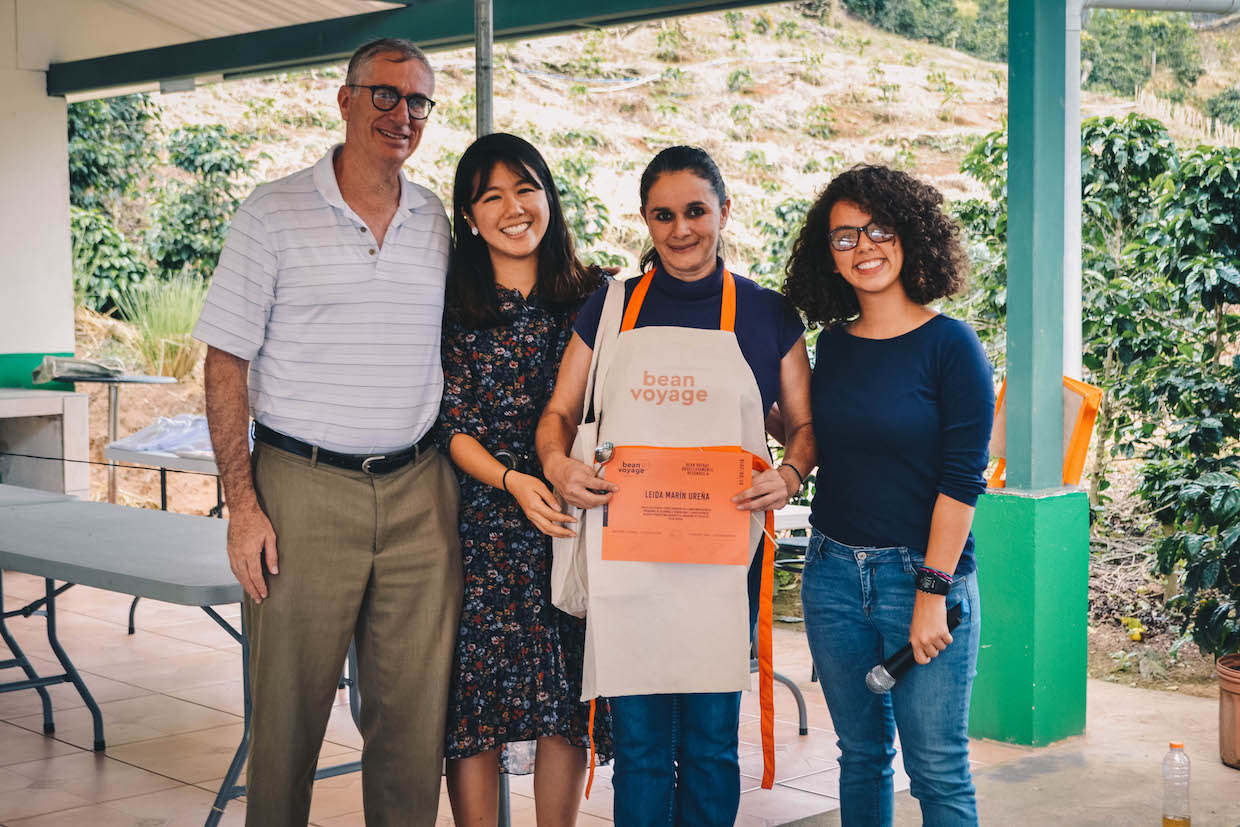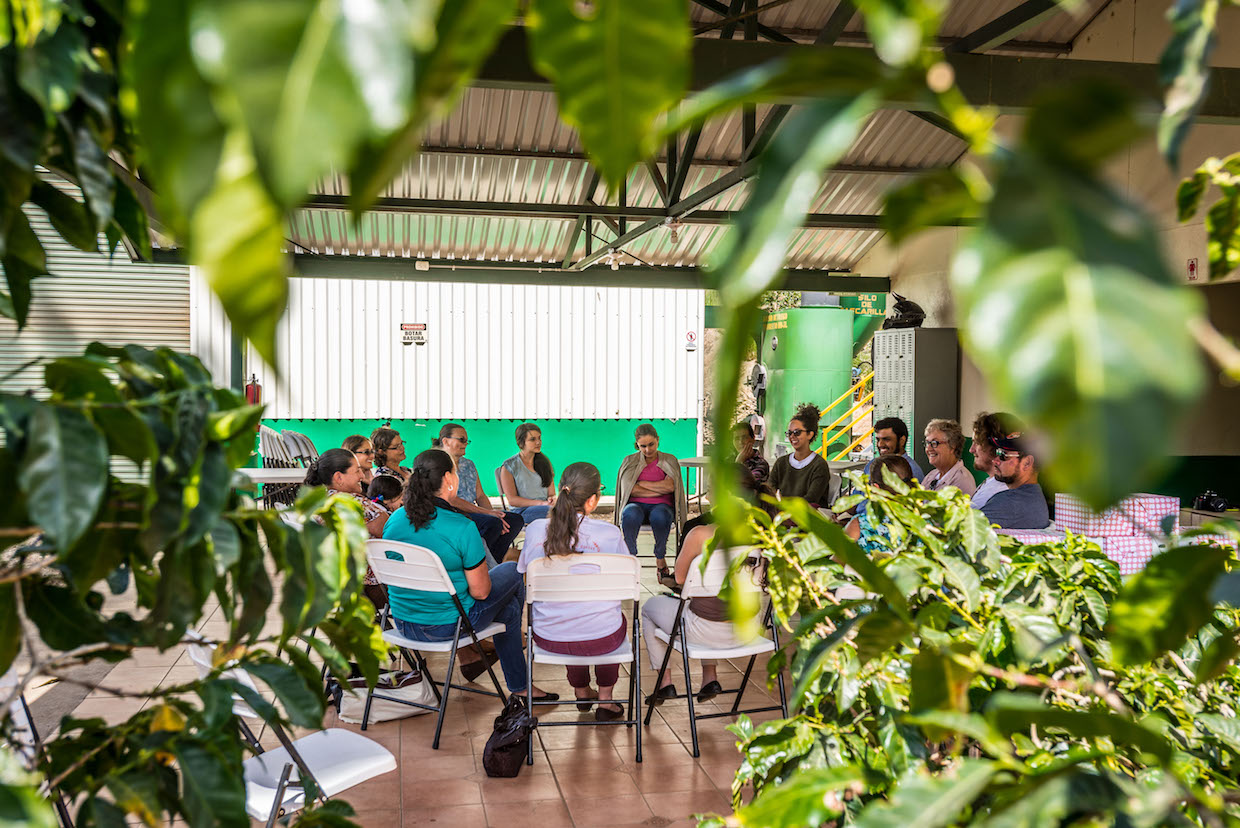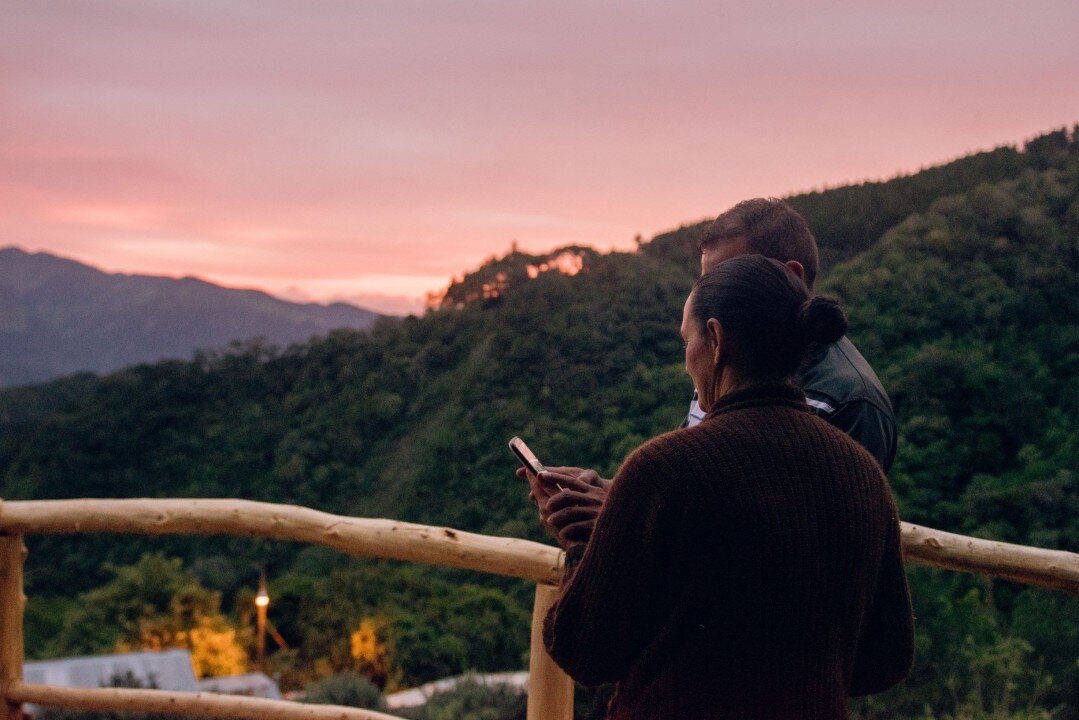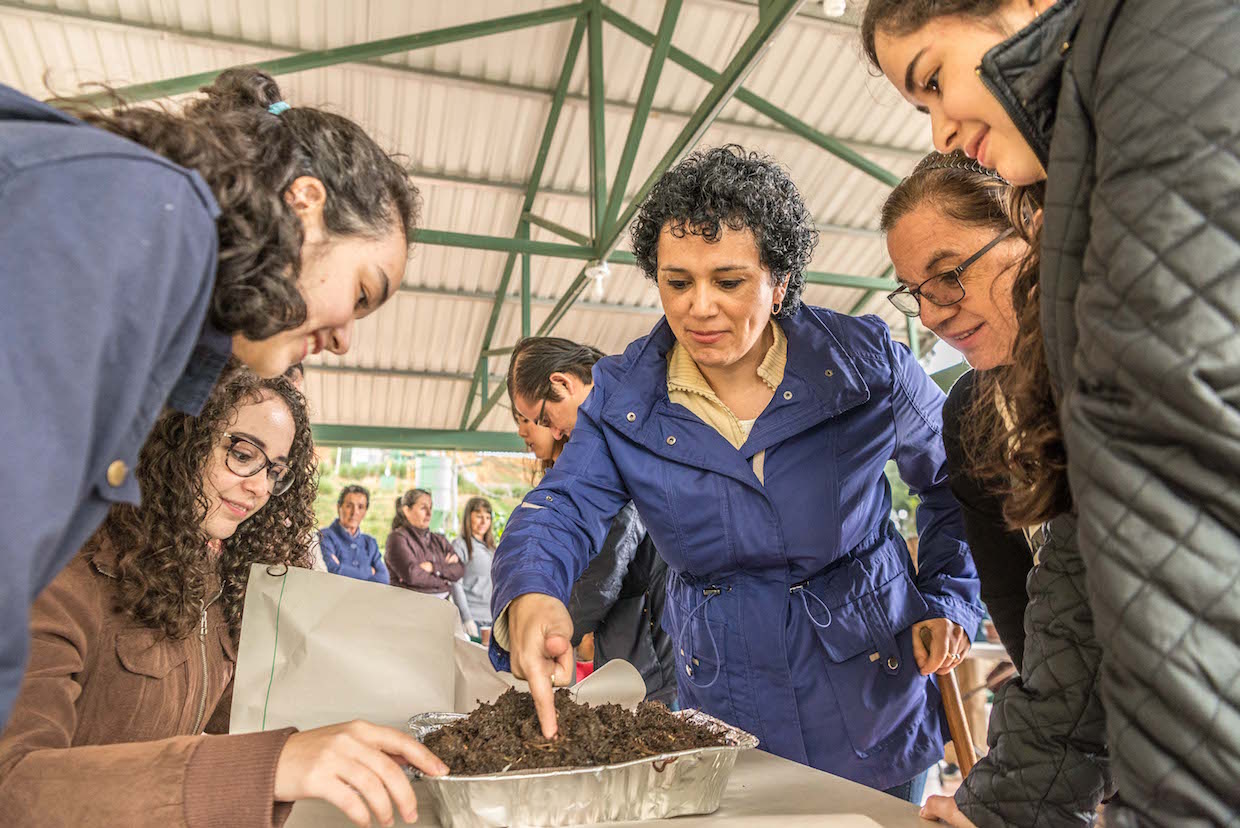The socially driven nonprofit Bean Voyage is entering into new virtual territory with a program designed to empower women smallholder coffee farmers in the COVID-19 era.
The group has entered a partnership with the Embassy of Canada in Costa Rica for the program called Colaboración Virtual 2020 (COVIR-20), which leans heavily on the use of the messaging app WhatsApp to build networks for production-related training and education.
If all goes well, the program would also directly connect women smallholder farmers with roasters from the United States, Canada and the UK interested in supporting traditionally under-represented women growers while sourcing delicious, traceable Costa Rican coffees.
The program is being supported by the embassy’s funds tied to Canada’s Fund for Local Initiatives (CFLI). Part of that fund is Canada’s Feminist International Assistance Policy, designed to empower women and girls towards decreased poverty and increased prosperity — which is precisely where Bean Voyage fits in.
Addressing the dramatic gender inequality in the coffee sector, the young organization has been working with Costa Rican women smallholder farmers since 2017. It recently led a pilot program with 67 farmers, and the scaled version in partnership with the Canadian embassy is designed to directly benefit 400 women farmers.
According to Bean Voyage, participating farmers will receive weekly tailored learning materials through WhatsApp with voice notes and images, and there will be virtual meetings with question-and-answer sessions, interactive games, and opportunities to build relationships with small-scale roasters.
Through webinars, mapping of youth populations, online applications and other digital means, 10 youth facilitators will be recruited. With tailored information from Costa Rica’s national coffee institute (ICAFE), those facilitators will then receive some 200 hours of training on a range of production and community issues such as processing and quality control, farm finances and gender-inclusive methodology.
From there, each youth facilitator will then be engaging 40 smallholder farmers enrolling in the program, which is designed to have country-wide influence through wide geographic representation throughout the Costa Rican coffeelands.

Independent of this project, Bean Voyage has developed its CARE curriculum and certification for women coffee farmers.
As of this writing, Bean Voyage is planning to conclude all this digital, socially distant learning by the end of February 2021 with the “Care Summit,” in which 150 women smallholder growers can meet in person to share experiences with one another while also potentially making connections with more roasters and other buyers.
In an announcement of the embassy partnership earlier this month, Bean Voyage cautioned that the COVID-19 pandemic will ultimately dictate the production of that event.
Nick Brown
Nick Brown is the editor of Daily Coffee News by Roast Magazine.









Comment